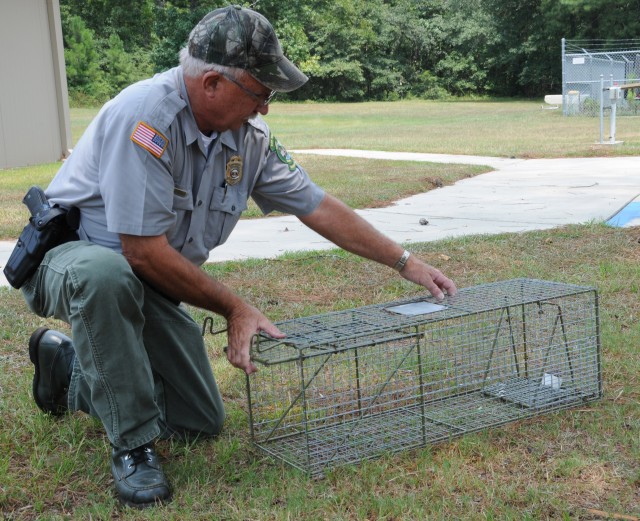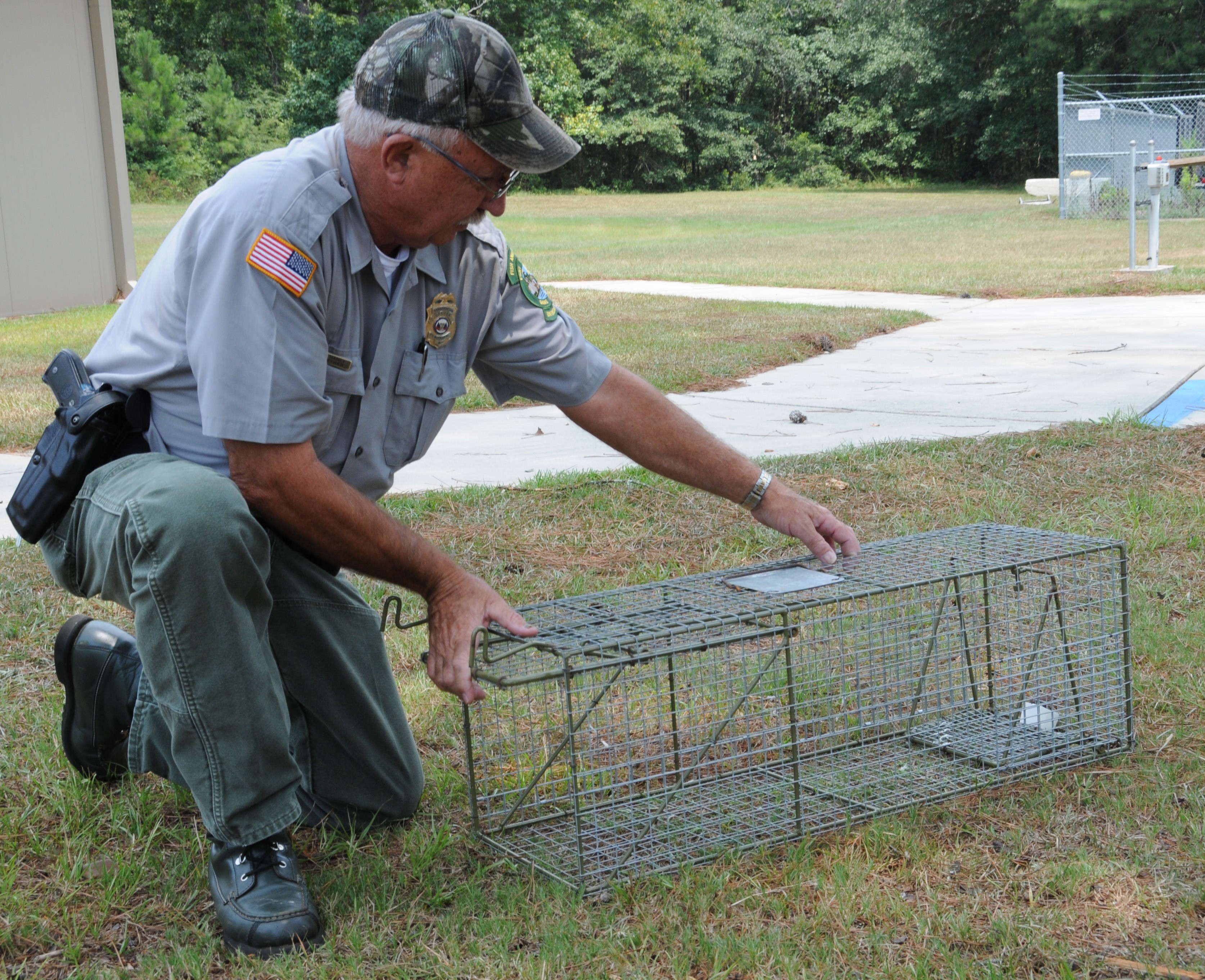FORT RUCKER, Ala. -- Community members can have an impact in preventing and reducing stray animal and varmint populations here, said post officials.
Pet owners should follow Fort Rucker regulations to ensure their four-legged companions don't get loose in the first place, and if they do, that they make it home safely, said Maj. Jay Massey, deputy provost marshal.
Microchipping is a good way to ensure a pet's safety if it gets loose.
"It is mandatory for anyone on Fort Rucker (who) owns a pet to have that pet microchipped within 72 hours of arrival to Fort Rucker," he said.
Kittens and puppies must be microchipped by 12 weeks of age, Massey noted. These services are available by appointment at the Fort Rucker Veterinary Clinic by calling 255-9061.
When military police find wandering creatures, they bring the animals to the MP station to be scanned for microchips. If microchips are implanted in animals, staff obtain owner information, contact owners and reunite them with their pets, he said.
"Ultimately, (microchips) result in (owners) getting their pets back faster if their pets get loose," he said.
Officials uphold a "three strikes you're out" rule, however, and may declare pets that have gotten loose three times as nuisances and remove them from the installation, Massey cautioned.
Varmints also pose problems on post. The most common pests include armadillos, snakes and feral cats, according to James Haney, game law enforcement officer.
Game warden staff sets live traps at residents' or office staffs' request, and come out on an as-needed basis to pick up some creatures, he said.
Trapped felines are taken to the veterinary clinic. Other animals, such as armadillos and snakes, are released into the wild, "because all animals have a job to do in nature," Haney said.
It is against post regulations to feed varmints, since wild animals pose dangers and inconveniences to community members, he said.
There are some steps residents can take to avoid attracting pests, according to Steve Stokes, senior game law enforcement officer.
Animals like raccoons and opossums search yards for food, so eliminating edibles will help keep them away. People who feed their cats and dogs outside should make sure all food is cleaned up immediately after their pets finish eating. Homeowners should also be vigilant to keep garbage cans secured, he noted.
Armadillos are attracted to moist ground, where grubs - their main food source - thrive, Stokes said. Eliminating standing water and ensuring proper yard drainage are the only ways to reduce armadillo populations.
Snakes hide in wood piles, brush, clutter and children's toys, so keeping yards neat can prevent snakes from sticking around. Parents should make sure all play areas are safe before allowing children outside.
"(Before parents) let kids out to play, (they should) move the toys around to be sure there's not a snake under them. (Snakes are) hunting for shade and a cool place to be," he said.
Individuals who find varmints or wish to have live traps installed should contact the MPs at 255-2222.


Social Sharing